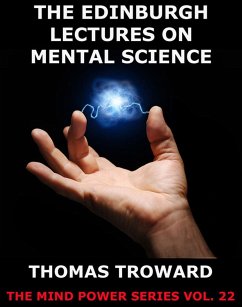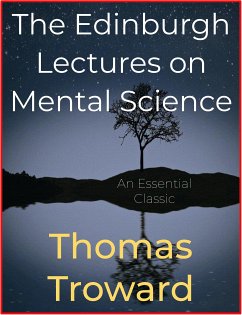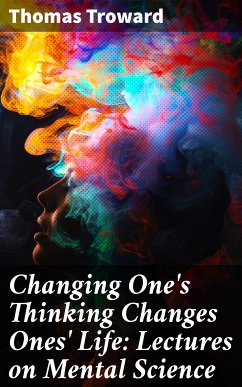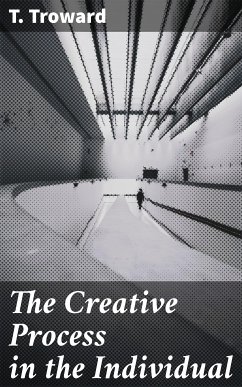
The Edinburgh Lectures on Mental Science (eBook, ePUB)
Enriched edition. Unlocking the Power of Thought and Reality
Kommentar: Kirkland, Jenna / Redaktion: Good Press

PAYBACK Punkte
0 °P sammeln!
In "The Edinburgh Lectures on Mental Science," T. Troward presents a comprehensive exploration of the correlation between mental processes and the objective world. Through his articulate prose and systematic reasoning, Troward delves into the principles of mental science, offering insights into the potency of thought, the nature of reality, and the mechanisms of personal development. The lectures, delivered in Edinburgh in the early 20th century, embody a style that blends philosophical depth with practical application, situating them within the broader context of New Thought movements that so...
In "The Edinburgh Lectures on Mental Science," T. Troward presents a comprehensive exploration of the correlation between mental processes and the objective world. Through his articulate prose and systematic reasoning, Troward delves into the principles of mental science, offering insights into the potency of thought, the nature of reality, and the mechanisms of personal development. The lectures, delivered in Edinburgh in the early 20th century, embody a style that blends philosophical depth with practical application, situating them within the broader context of New Thought movements that sought to unify spiritual and scientific discourse. T. Troward was a pivotal figure in the development of modern metaphysical thought, influenced by his experiences as a customs officer in colonial India and the spiritual awakening he encountered during this period. His scholarly pursuits and personal philosophy were shaped by his involvement in various esoteric and philosophical traditions, allowing him to synthesize diverse ideas into a coherent framework that champions the transformative power of the mind. This book is highly recommended for readers interested in the intersection of psychology, spirituality, and personal empowerment. Troward's clarity of thought and structured argumentation provide not only intellectual stimulation but also practical guidance for anyone seeking to harness the power of their own mind. In this enriched edition, we have carefully created added value for your reading experience: - A succinct Introduction situates the work's timeless appeal and themes. - The Synopsis outlines the central plot, highlighting key developments without spoiling critical twists. - A detailed Historical Context immerses you in the era's events and influences that shaped the writing. - An Author Biography reveals milestones in the author's life, illuminating the personal insights behind the text. - A thorough Analysis dissects symbols, motifs, and character arcs to unearth underlying meanings. - Reflection questions prompt you to engage personally with the work's messages, connecting them to modern life. - Hand-picked Memorable Quotes shine a spotlight on moments of literary brilliance. - Interactive footnotes clarify unusual references, historical allusions, and archaic phrases for an effortless, more informed read.
Dieser Download kann aus rechtlichen Gründen nur mit Rechnungsadresse in A, B, BG, CY, CZ, D, DK, EW, E, FIN, F, GR, H, IRL, I, LT, L, LR, M, NL, PL, P, R, S, SLO, SK ausgeliefert werden.













